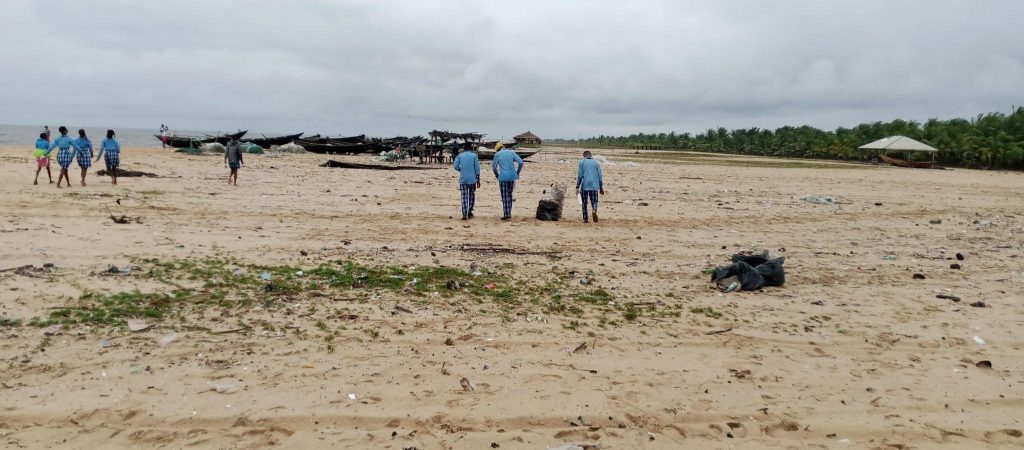
Beauty of features such as beaches is not just for scenic impressions, but a lifesaver to marine life. Resuscitation of the natural state of coastlines and/or beaches enables the production, reproduction, and growth of marine life such as sea turtles. This ultimately benefits people in nearby communities for creatures like sea turtles rehabilitate oceans from which people get food.
The natural state of beaches in coastal communities of Nigeria has been greatly deteriorating. The main component of this gross loss of natural value has been plastic which has invasively become a component of such beaches. Single-use plastic has done more damage to the oceans, in that, the wash-off of plastic from the ocean on the beaches is a very tiny fraction of what oceans and other water bodies absorb.
The plastic menace to oceans
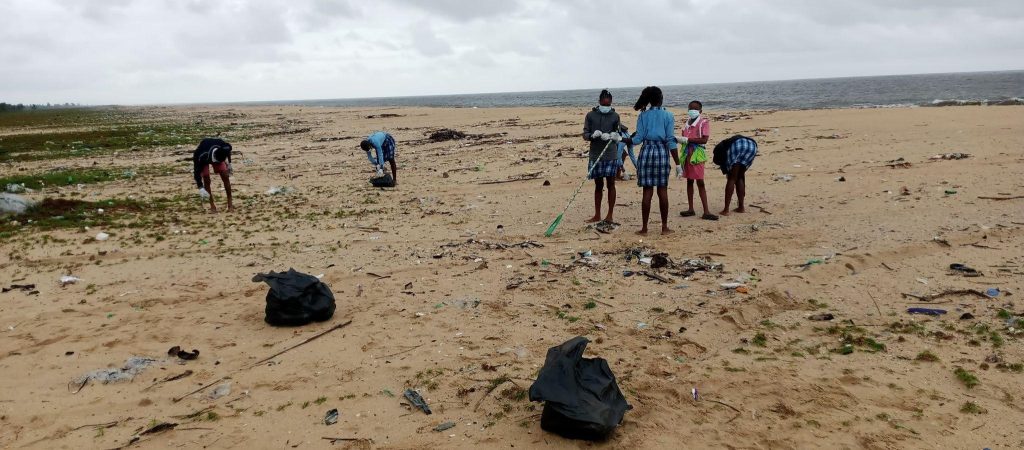
Various sources accord different values of the amount of plastic that ends up in the ocean each year. National Geographic has an estimate of 5.2 trillion pieces of plastic debris being part of the ocean, with about 269,000 tons floating on the ocean surface. Plastic bags, bottles, balloons, degraded buoys, packaging materials and food wrappers are some of the examples of plastic waste that finds itself in oceans.
With such facts, comprehending the damage that the plastic waste issue is doing to oceans, and the coastline arrives at a very nasty point of destroying oceanic environments, and lives therein. Over time, these plastics break down into smaller, more toxic pieces. Small plastics are not only easily ingested, but also act as hosts for invasive species which are carried to other ocean regions.
Why we are coming to fight plastic pollution
To prevent further harm that the ocean withstands, we have held ourselves accountable to contribute to minimizing the damage that plastic is doing to ocean environments and life. Our activities have intervened in situations of immense plastic pollution near ocean environments such as beaches. These activities have mainly included organizing communities for collective action on picking up plastic materials on the ocean coastlines. Also, such activities have been characteristic of sensitization on the benefits of responsible plastic management to marine life.
How we are coming in to combat plastic pollution
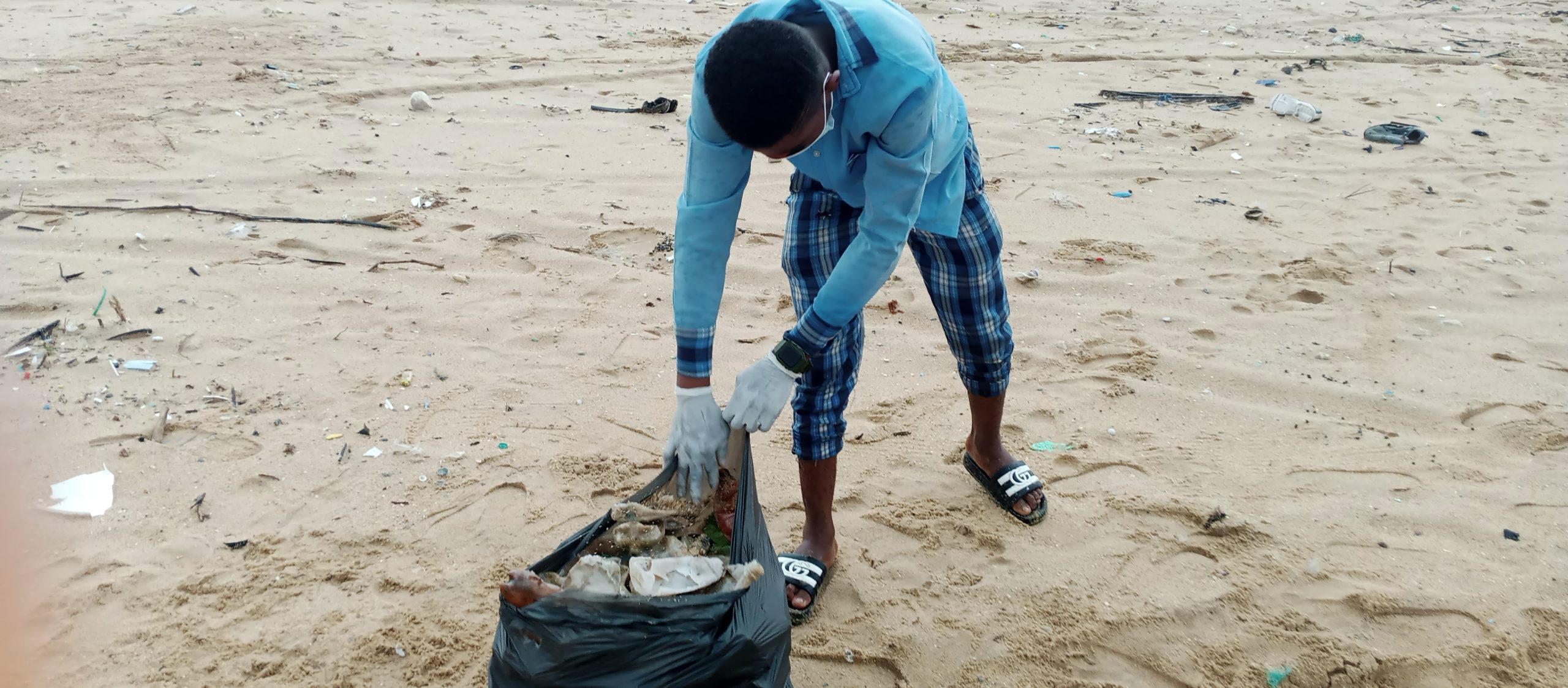
Befitting of mention is our recent Beach Clean-up and sea turtle conservation campaign at Araromi Community in Ilaje Local Government in Ondo State. This activity was held on 29 July 2023. Interesting about this campaign was the mobilization of students from some schools in communities in Ondo State to be at the center of this campaign. The students that were part of this initiative were from Royal Achievers School and Fortune Gate School.
Beneath the desire to contribute to lessening plastic debris entering into the Atlantic Ocean, from Araromi Beach, we also wanted to promote environmental education among students, encourage conservation activities among students and build the leadership and teamwork skills students that were in this initiative. An involvement like this also would foster a love for nature and inspire lifelong conservation habits among the young generation.
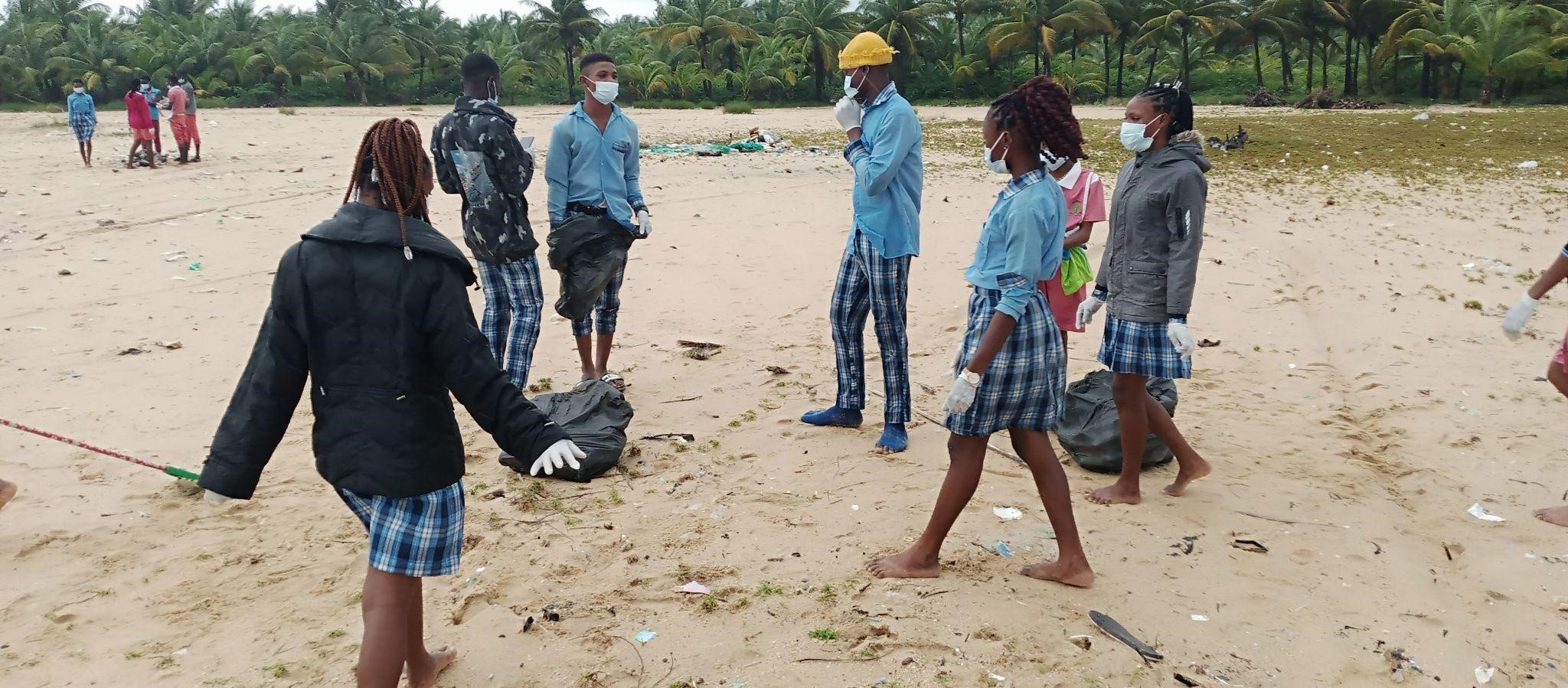
With the support from students, and their coordinators at these schools, we managed to relieve Araromi Beach of a significant amount of waste –including plastics, which gave it a fresh look. The cleaning activity was facilitated by gloves, facial masks, cleaning equipment, trash bags, and other logistics provided by our organisation – One Health and Development Initiative.
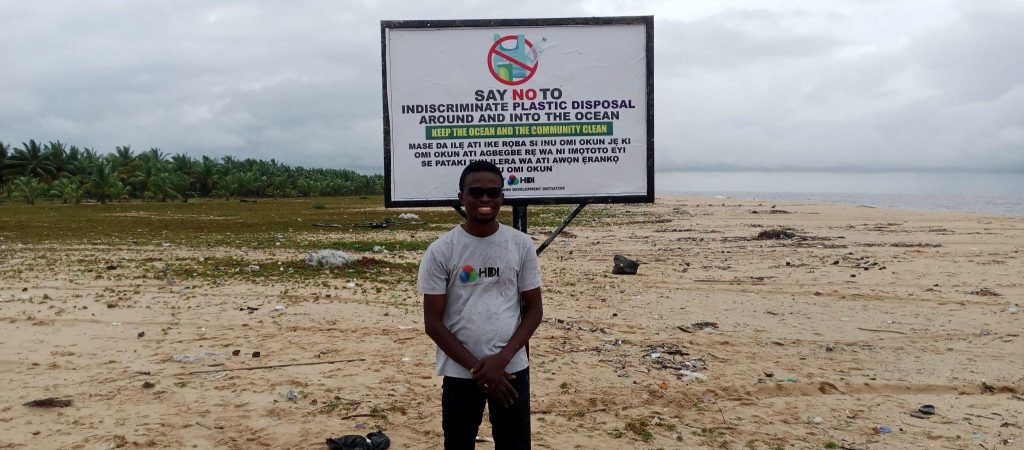
To make this initiative have a lasting effect on the community members, we had a number of stickers installed on various strategic points of the beach. This was strengthened with the installation of a bigger signage. Information on these tools was more on encouraging responsible plastic management practices in order to protect marine life and the marine ecosystem. The kind of information on these tools was both in English and the majority local language of Araromi Community (Yoruba language) to make sure that it was digestible by a wide variety of people in such a community.
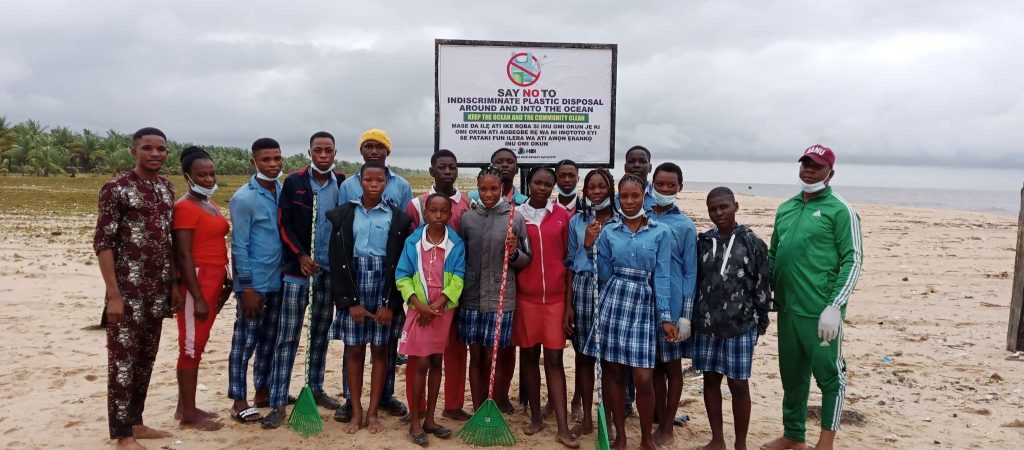
The level of involvement in the cleaning activities, and installation of plastic-management call-to-action tools gave them a ton of know-how information in the area of conservation. We highly anticipate that these persons, with the experiences that they were exposed to, will develop personal responsibility over plastic waste, and kick-start efforts in their communities to deal with the challenge that plastic pollution poses to ocean communities.
In summary, plastic pollution is way ahead of the interventions that should prevent its adverse effects on oceanic ecosystems, and life. To prevent further damage to the oceans, and life that inhabits such an environment, action to restore plastic-free ocean environments starts with the little amount of plastic materials that is disposed of at the coastlines/beaches. Works of organisations such as ours – One Health and Development Initiative – to prevent further effects of the plastic solutions have taken a different approach to plastic pollution by building a future generation of conservationists that are tough on plastic pollution in their coastal communities.





